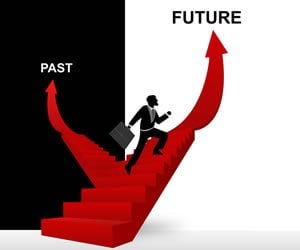It Pays to Be an Early (Financial) Bird
Updated October 5, 2021. The article was updated to correct minor grammatical errors and to ... Read more
Written by: Susan Doktor
Published on: February 25, 2021
Updated October 5, 2021. The article was updated to correct minor grammatical errors and to ... Read more
Written by: Susan Doktor
Published on: February 25, 2021

Medical training is a significant investment for both you and your spouse. It’s an investment ... Read more
Written by: Amy Rakowczyk
Published on: June 7, 2018

In our last installment, we recognized the value of money as a means of allotting ... Read more
Written by: CrispyDoc
Published on: June 13, 2017

“Compound interest is the eighth wonder of the world. He who understands it, earns it…he ... Read more
Written by: CrispyDoc
Published on: April 27, 2017

Aside from long hours and lots of studying, the other guarantee in medical school is ... Read more
Written by: Amy Rakowczyk
Published on: February 2, 2017

With loan debt for students in graduate health professions rising exponentially, the conversation around choosing ... Read more
Written by: Timothy Ulbrich
Published on: May 31, 2016

I remember the sheer joy of ripping open the letter that granted me a medical ... Read more
Written by: Adelle
Published on: March 14, 2016

You’ve already done the hard part, you’ve made it into medical school! But how are ... Read more
Written by: AAMC Staff
Published on: July 1, 2015

Start your post-undergrad life on the right foot with these tips from the AAMC, whether you are starting school right away or taking a gap year.
Written by: AAMC Staff
Published on: March 4, 2014

The National Health Service Corps creates a win-win for doctors and underserved communities by financing medical education and bringing health care to those who need it most.
Written by: Christina Crisologo
Published on: February 25, 2014

Plan for financial success despite the challenges of student debt.
Written by: James M. Dahle, MD, FACEP
Published on: November 15, 2013

Updated September 19, 2021. The article was updated to correct minor grammatical errors and for ... Read more
Written by: SDN Staff
Published on: May 3, 2008